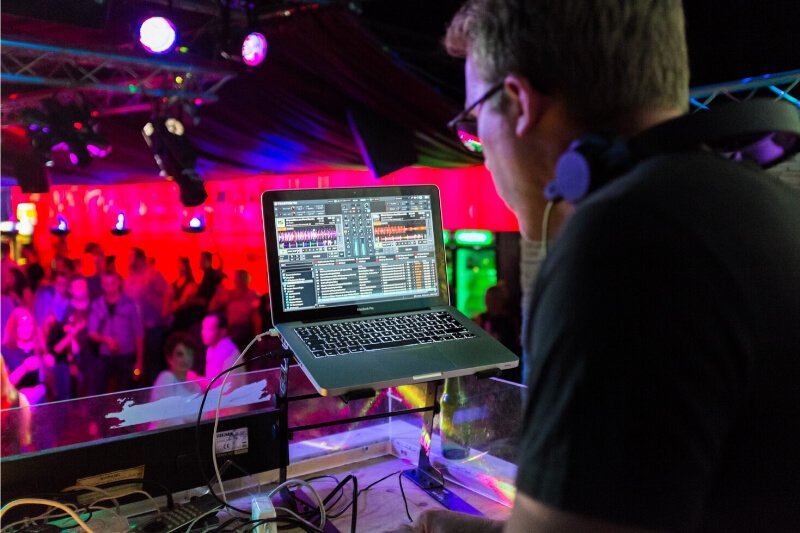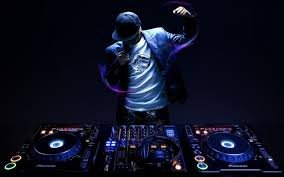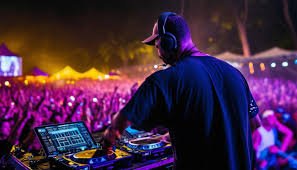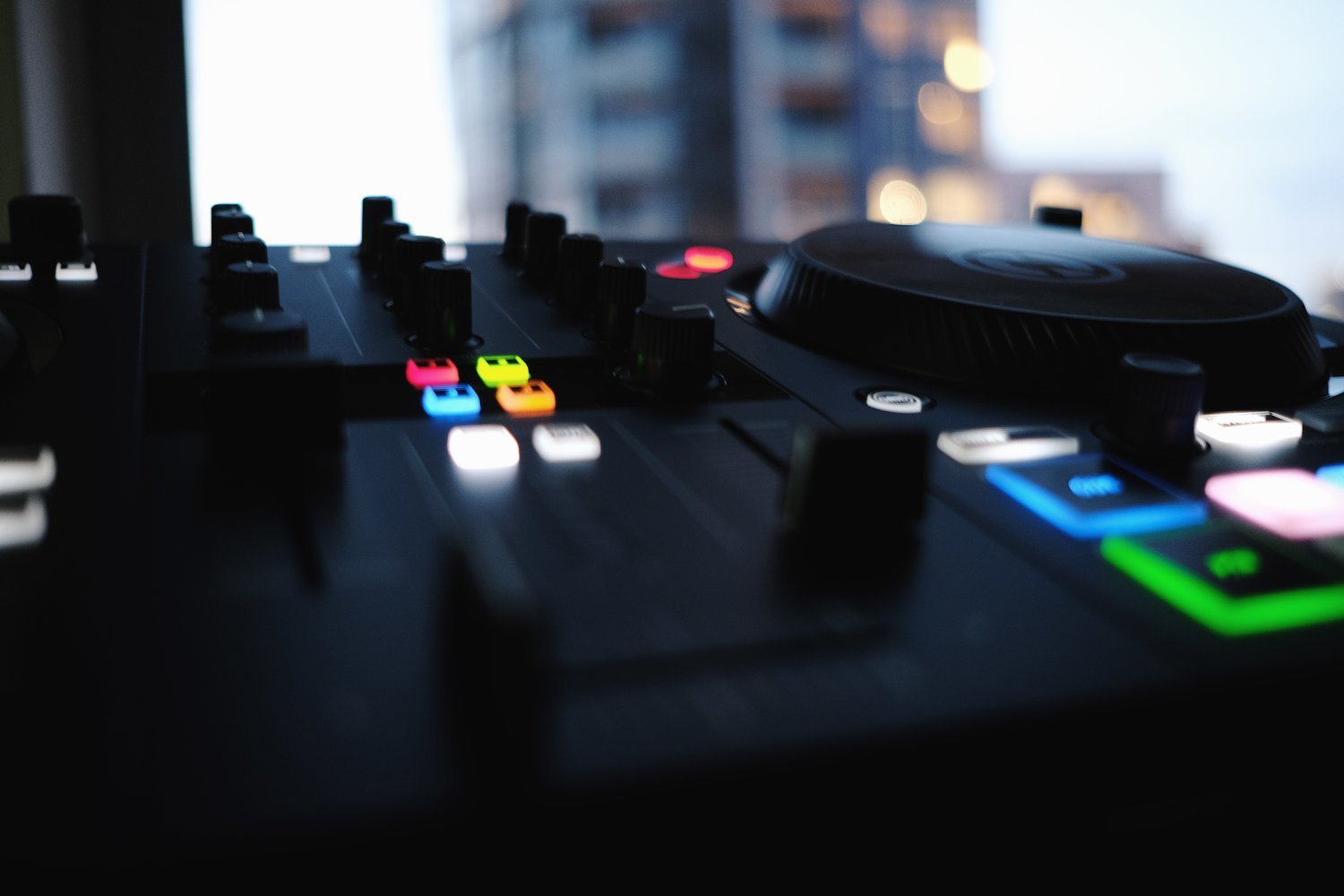The world of DJing is as diverse as the music it plays. From spinning tracks in a nightclub to curating playlists for radio broadcasts, each type of DJ brings their own unique flair and skillset to the table. In this post, we’ll explore the different types of DJs, their roles, and what makes each one distinct. Whether you’re looking to become a DJ or simply curious about the profession, understanding the different types of DJs is essential.
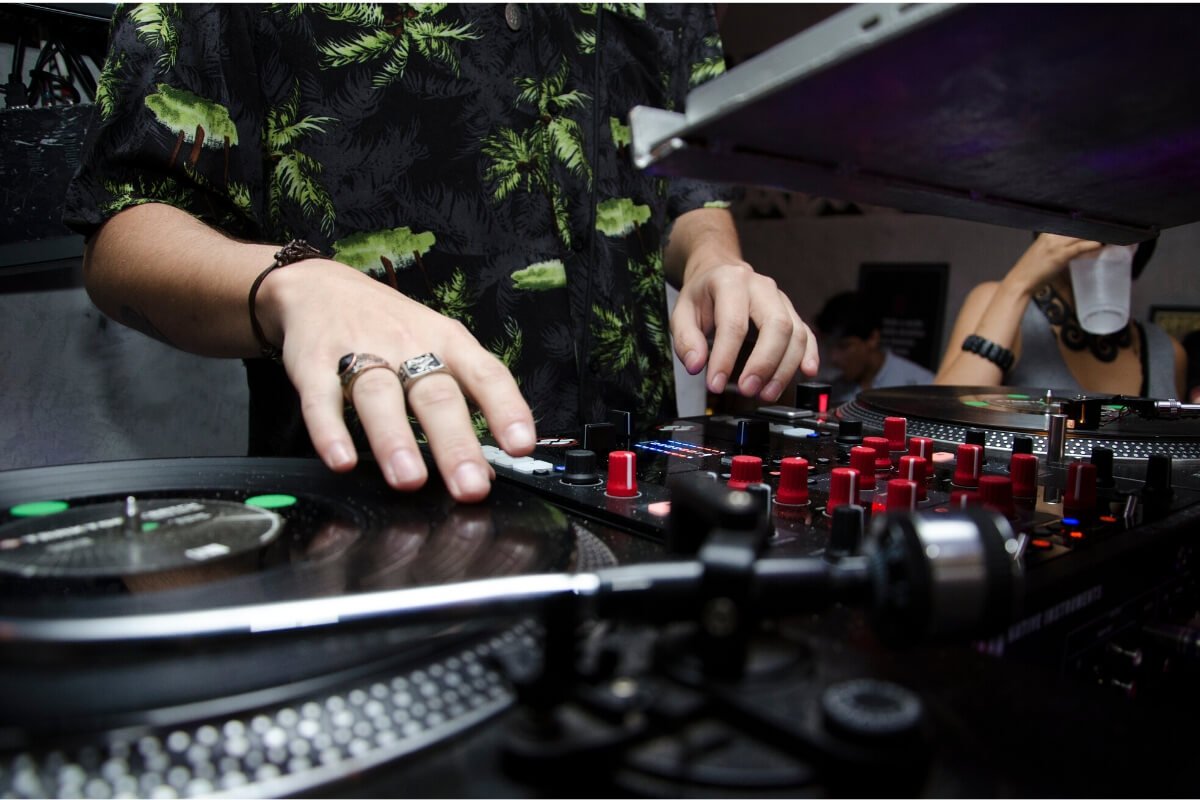
Club DJs: The Heart of the Nightlife Scene
Club DJs are arguably the most well-known type of DJ. Their primary role is to create an atmosphere that keeps people dancing and engaged in the club environment. Club DJs mix electronic dance music (EDM), house, techno, and other genres that appeal to large crowds. They work with powerful sound systems and lighting setups to enhance the party experience.
Key Skills of a Club DJ:
- Beatmatching: Aligning the beats of two tracks to ensure smooth transitions.
- Track Selection: Choosing the right tracks that match the mood and energy of the crowd.
- Crowd Control: Reading the audience and adjusting the music to maintain or shift the vibe as needed.
Club DJs often perform live, and their sets can last for several hours, keeping the energy high throughout the night.
Radio DJs: Curating the Airwaves
Radio DJs are responsible for playing music on the airwaves, whether on traditional FM/AM stations or internet radio platforms. Unlike club DJs, radio DJs have less freedom to mix tracks live but focus on curating playlists, introducing songs, and engaging with listeners. They may also conduct interviews, read ads, and create themed shows.
Key Skills of a Radio DJ:
- Voice and Presence: Having an engaging voice and on-air personality that connects with listeners.
- Music Knowledge: Understanding a wide range of genres and trends to create diverse playlists.
- Technical Skills: Operating sound equipment and ensuring the broadcast runs smoothly.
Radio DJs may specialize in specific genres, like rock, hip-hop, or electronic, and often have a loyal following of listeners who tune in regularly for their curated shows.
Mobile DJs: Bringing the Party Everywhere
Mobile DJs are versatile performers who bring their gear and music to various events, including weddings, corporate events, parties, and school dances. They are responsible for creating the soundtrack for a wide range of occasions, from formal celebrations to casual gatherings. Mobile DJs are often hired for private events, and their job is to tailor the music to the specific crowd and atmosphere.
Key Skills of a Mobile DJ:
- Adaptability: Being able to play a variety of genres and styles to suit different events.
- Equipment Knowledge: Setting up sound systems, lighting, and other equipment in diverse venues.
- Crowd Interaction: Engaging with guests, taking requests, and maintaining the energy of the event.
Mobile DJs must be well-organized, as they often need to coordinate logistics and ensure that everything runs smoothly during the event.
Producer DJs: Creating Music, Not Just Playing It
Producer DJs combine the roles of both DJ and music producer. They create their own tracks, remixes, and beats, often performing their original material live. Producer DJs may perform in clubs, festivals, or even at private events. Their performances often include mixing their own tracks with others, creating unique live sets that showcase their creative work.
Key Skills of a Producer DJ:
- Music Production: Understanding music theory and digital audio workstations (DAWs) to produce original tracks.
- Live Remixing: Remixing or editing tracks on the fly during a performance.
- Creativity: Crafting unique sets that blend their own work with existing music.
Producer DJs are often at the forefront of musical trends, as they are not just performing existing tracks but contributing to the creation of new ones.
Other Types of DJs
Beyond the main types discussed above, there are several niche categories of DJs, each with its own specialized role:
- Turntablists: These DJs focus on advanced scratching, beat juggling, and other turntable techniques, often showcasing their skills in battle competitions.
- Wedding DJs: Specializing in creating the perfect atmosphere for weddings, wedding DJs must know how to play a mix of genres, accommodate requests, and manage the schedule of events.
- Festival DJs: Playing at large-scale events like music festivals, these DJs typically perform for massive crowds and have the ability to control the energy of large audiences.
- Soundtrack DJs: Often found in movie theaters, exhibitions, or art installations, these DJs create immersive soundscapes to enhance visual experiences.
Conclusion
Each type of DJ plays a vital role in the music ecosystem, whether they’re performing in a club, curating a radio show, or bringing the party to a wedding. The diversity of DJing allows for a wide range of personal expression, and no two types of DJs are the same. By understanding the key differences and skills required for each type, you can determine which path best suits your passions and talents. The world of DJing is vast, and there’s a place for every type of music lover to shine.







